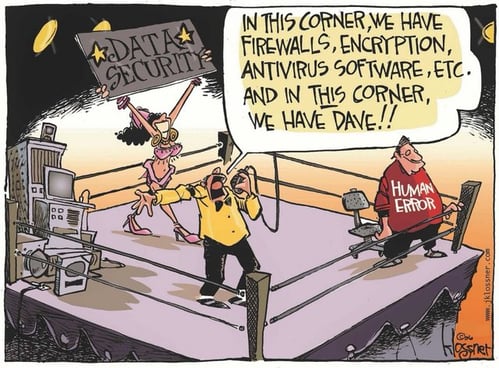2 Minute Read
Pulling the trigger to buy new technology, be it software or hardware, can be a difficult decision to make. The expenses can be significant and the return on investment difficult to determine. It can be very easy to follow the maxim, “If it isn’t broke, don’t fix it.”
But there is a cost to NOT replacing technology, too. And those costs are very often overlooked - or ignored because it is inconvenient to do the analysis.

Let's think through an example, how much might
it cost if you decide to stop paying for new updates to your antivirus software? Sure, you’ll be protected from any virus that is around now and save money on the updates, but when a new email circulates with yet another foreign princess who needs to park a million dollars because her father was unlawfully deposed and she is facing certain catastrophe, and some moron in your office clicks on the attachment, how much is it going to cost you to fix that gigantic headache?
In the ARM industry, there are new laws and rules that seem to come out every day. New court rulings affect how your letters are printed and what you can say and can’t say in a letter or on the phone. Choosing not to stay on top of those developments is likely going to cost a lot of money down the line.
Think of how far technology has come. Moore’s Law states that the processing power of technology doubles every two years. That means that systems that are coming out now are exponentially more advanced that systems that hit the market four or six years ago. Think of how far the iPhone has come in 10 years! We’re not that far removed from using flip phones.
Are you using the software or hardware equivalent of a flip phone and trying to keep up with the iPhone X? Who’s going to win that race?
Not only are you losing out on
valuable power and capabilities, but the available pool of people who can help you fix your system is shrinking. The number of people who can fix systems that are running on Windows ME is likely not that big.
Call it insurance. Call it investment. Call it protection. Call it modernization. Call it chicken soup for the company, it doesn't matter. Collection agencies need to recognize when it’s time to make the necessary investments in technology, or risk being left behind by their more technologically advanced competition.
 Let's think through an example, how much might it cost if you decide to stop paying for new updates to your antivirus software? Sure, you’ll be protected from any virus that is around now and save money on the updates, but when a new email circulates with yet another foreign princess who needs to park a million dollars because her father was unlawfully deposed and she is facing certain catastrophe, and some moron in your office clicks on the attachment, how much is it going to cost you to fix that gigantic headache?
Let's think through an example, how much might it cost if you decide to stop paying for new updates to your antivirus software? Sure, you’ll be protected from any virus that is around now and save money on the updates, but when a new email circulates with yet another foreign princess who needs to park a million dollars because her father was unlawfully deposed and she is facing certain catastrophe, and some moron in your office clicks on the attachment, how much is it going to cost you to fix that gigantic headache?